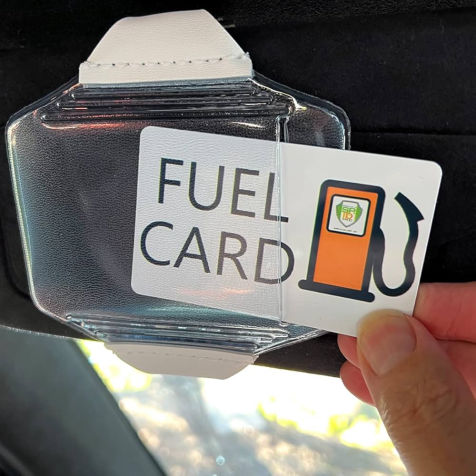Revolutionizing Your Fueling Strategy with Fleet Fueling Cards


Managing a fleet involves a complex array of responsibilities, from vehicle maintenance to route optimization. One of the most significant yet often overlooked aspects is fuel management. As fuel costs continue to fluctuate and efficiency becomes increasingly vital, many fleet managers are turning to fleet fueling cards as a game-changing solution. These cards are not just a method of payment—they are a powerful tool that can transform how a business approaches fueling.
Understanding Fleet Fueling Cards
Fleet fueling cards, also known as fleet fuel cards or commercial fuel cards, are payment cards designed specifically for businesses with a fleet of vehicles. Unlike traditional credit cards, these cards offer specialized features tailored for fleet operations. They provide access to fuel purchases across a vast network of fueling stations and can be customized to meet the needs of individual drivers and vehicles.
The purpose of fleet fueling cards goes far beyond the convenience of cashless transactions. These cards are built to help companies manage and monitor fuel consumption more efficiently. Every transaction made using the card is recorded, categorized, and reported, making it easier for businesses to track spending and identify areas for improvement.
Enhanced Control and Security
One of the primary benefits of adopting a fleet fueling card system is the enhanced level of control it provides. Fleet managers can set purchase limits, restrict fuel types, and define when and where the cards can be used. This level of control helps prevent unauthorized purchases and significantly reduces the risk of fraud or misuse.
Security is a major concern for any business handling multiple vehicles and drivers. Fleet fueling cards are equipped with robust security features such as PIN protection and real-time alerts, giving managers immediate insight into any irregular activity. By ensuring that drivers are only buying fuel—and only at approved locations—the cards contribute to tighter expense management and improved accountability.
Streamlined Reporting and Analytics
Managing fuel expenses manually or through basic spreadsheets can quickly become overwhelming. Fleet fueling cards simplify this process by automatically compiling detailed reports of every transaction. These reports can be customized to show spending per driver, vehicle, route, or time frame. This level of insight empowers fleet managers to make informed decisions based on real data.
Data analytics offered through fleet fueling card platforms can highlight trends that may otherwise go unnoticed. For instance, a spike in fuel consumption by a particular vehicle may point to maintenance issues, while consistently high fuel purchases on specific routes may lead to reevaluating logistics. These insights can lead to long-term cost savings and better resource allocation.
Improved Operational Efficiency
Time is a valuable commodity in fleet operations. Traditional fueling methods that involve drivers paying out-of-pocket and submitting receipts for reimbursement can be time-consuming and error-prone. Fleet fueling cards eliminate the need for manual recordkeeping and reimbursements, allowing drivers to focus on their primary responsibilities.
Additionally, these cards are accepted at thousands of locations nationwide, ensuring that drivers have access to fuel wherever they go without the stress of finding an approved vendor. The convenience of a seamless, consistent fueling process leads to fewer delays and more reliable scheduling.
Customized Programs for Business Needs
Not all fleets operate the same way, and fleet fueling card providers recognize this. Many offer customizable programs that align with a business’s specific needs. Whether it’s a small delivery service with a handful of vans or a large logistics operation with hundreds of trucks, fueling card programs can be tailored accordingly.
Some programs may include discounts on fuel purchases, maintenance services, or loyalty rewards. Others integrate with accounting and fleet management software, creating a unified ecosystem that streamlines operations from fuel tracking to tax reporting.
Environmental Impact and Sustainability
Fuel efficiency isn't just about saving money—it’s also about reducing environmental impact. Fleet fueling cards can support a company’s sustainability goals by helping track carbon emissions and fuel usage patterns. With detailed data at their fingertips, businesses can make strategic decisions about vehicle replacement, routing, and driver training aimed at reducing fuel consumption.
By promoting more responsible fuel use, these cards contribute to a greener, more sustainable fleet operation. This not only benefits the environment but can also enhance a company’s public image and align with corporate social responsibility goals.
